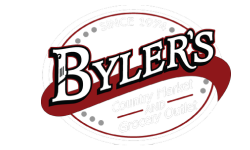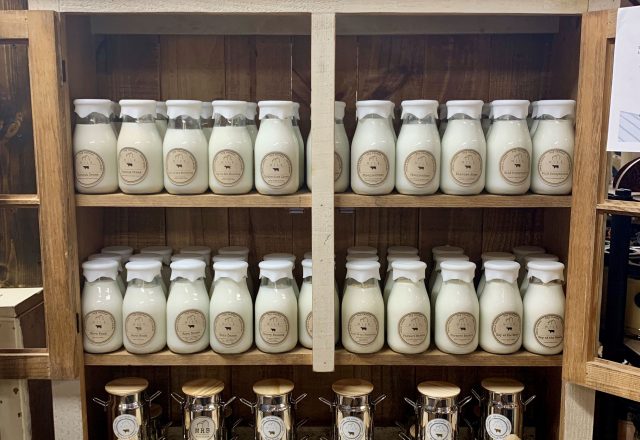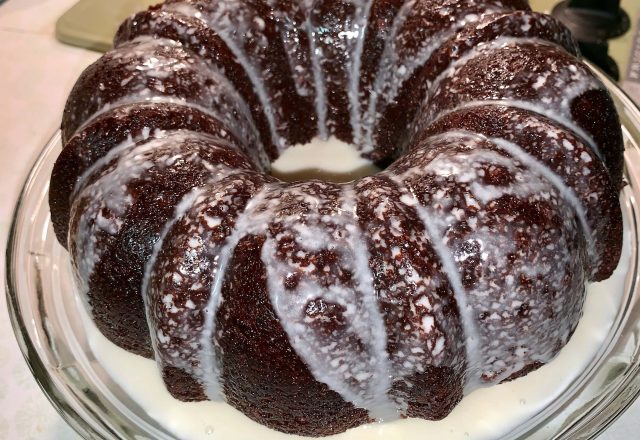Closeout Groceries FAQ and Resources
“I should have bought it when I saw it!”
With grocery purchasing power through the closeout market, we are able to offer national and store brand products at well below average pricing. Closeouts are available due to label changes, overproductions, warehouse damage, or shortcodes. Our floors are stacked with canned fruits & vegetables, cereal, drinks, pet food, paper products, snacks and more; not to mention the large frozen food & dairy selections. With inventory constantly changing, customers have learned to shop often and stock up on their favourite items.
At Byler’s, we’re working hard to find the best deals to help you feed your family for less.
Product Dating FAQ
What is Product Dating? There are two types of product dating, “open dating” and “closed dating.”
- Open Dating – The most common form of dating is referred to as “open dating.” Open dating uses a calendar date, as opposed to a code on a food product. Common examples include “Sell by”, “Best if used by” and “Use by.” Open dating is not a safety date. It is commonly found on perishable food such as meat, poultry, eggs and dairy products, Retailers are forbidden to sell baby formula past the “sell by date.” Occasionally, canned good and boxed goods will display an “open” or “calendar” date. These are “best if used by” dates for peak quality. These are the manufacturer’s recommendations for maximum freshness and nutrient value, not safety dates.
- Closed Dating – “Closed dating” or “Coded” dating generally refers to a manufacturer’s code stamped on the product. These codes typically appear on shelf-stable products such as canned and boxed foods. Some manufacturer’s stamp the date the product was manufactured or packaged. Some use a product code that is not able to be deciphered. (US Department of Agriculture and PA Department of Agriculture)
Are Retailers Allowed to Sell Products Beyond the Expiration Date on the Package? Yes, as long as a product is wholesome a retailer may legally sell fresh or processed meat and poultry products beyond the expiration date on the package. (Adapted from Food Marketing Institute Information)
What is a Product’s Shelf Life? This varies depending on the type of product. Many processed and packaged foods are shelf stable, which means that they do not require refrigeration until opened. These items are often referred to as non-perishable for these reasons. Their shelf life is evaluated in terms of the quality of the product. Canned food can last for years because shelf stable foods experience very slow rate of organic changes. After several years, however, the product may lose taste and color. (Adapted from National Food Processors Association Information)
Is Dating Required by Federal Law? Except for Infant Formula and some baby food, product dating is NOT required by Federal regulations. However, if a calendar date is used, it must express both the month and day of the month (and the year, in the case of shelf-stable and frozen products). If a calendar date is shown, immediately adjacent to the date must be a phrase explaining the meaning of the date such as “sell by” or “use before.” There is no uniform or universal system used for food dating in the US. (US Dept. of Agriculture)
How Long Does Canned Food Remain Edible and Retain Its Nutritional Content? Canned food has a shelf life of at least two years from the date of processing. Canned food retains its safety and nutritional value well beyond two years, but it may have some variation in quality, such as a change of color or texture. Canning is a high-heat process that renders the food commercially sterile. Food safety is not an issue in product kept on the shelf in moderate temperatures (75 degrees Fahrenheit and below). The acid content of the food and the lining of the can are important factors in a product’s quality and appearance after long periods of storage. (Adapted from mealtime.org, Canned Food Alliance and The National Food Processors Association)
What about Frozen Foods? Once a perishable product is frozen at the proper temperature, it does not matter if the date expires because food kept frozen continuously is safe indefinitely. Byler’s freezes all packaged items before the expiration date which extends the life. Packing is important to the quality and appearance of frozen foods. Products exposed to air can develop “freezer burn” which does not affect the safety of the product but can impact the taste and quality. (Adapted information from PA Dept. of Agriculture and American Frozen Food Institute)
What Do Can Codes Mean? Cans must exhibit a packing code to enable tracking of the product in interstate commerce. This enables manufacturers to rotate their stock as well as to locate their products in the event of a recall. These codes, which appear as a series of letter and /or numbers, might refer to the date or time of manufacture. They aren’t meant for the consumer to interpret as “use-by” dates. There is no book which tells how to translate the codes into dates. (U.S. Dept. of Agriculture)
How Long Can Shelf-Stable Foods Be Safely Stored? According to the Food and Drug Administration (FDA), food can be safe forever from a foodborne-illness standpoint – but if shelf-stable food has been on the shelf for an extended period of time, you might not want to eat it because the quality may not be good. In this case, the “best if used by” date on the label of the product is an indication of whether or not the quality of the food is good. Food quality deals with the taste, texture and nutritional value of food. The FDA does not require an expiration date for shelf-stable foods since the storage time for these foods is a quality issue, not a food safety concern. (FDA Food Safety)
Helpful Food Dating Links
- FDA wants food expiration dates standardized with ‘best if used by’ to cut waste
- Gateway to Government Food Safety Information
- U.S. Food and Drug Administration Center for Food Safety and Applied Nutrition
- Mealtime.org – Canned Food Alliance – various food information
- Grocery Manufacturers Association – various information including food safety by the Association of Food, Beverage and Consumer Products Companies
- Delaware Health & Social Services – Office of Food Protection
- PA Department of Agriculture – industry information, product recalls and food safety information
- American Frozen Food Institute – various frozen food industry information
- U.S. Department of Agriculture – Food Safety and Inspection Service – Fact Sheets
U.S. Department of Agriculture taped messages on food safety: 1-888-674-6854
Link to machine readable health coverage: www.asrhealthbenefits.com/MRF


